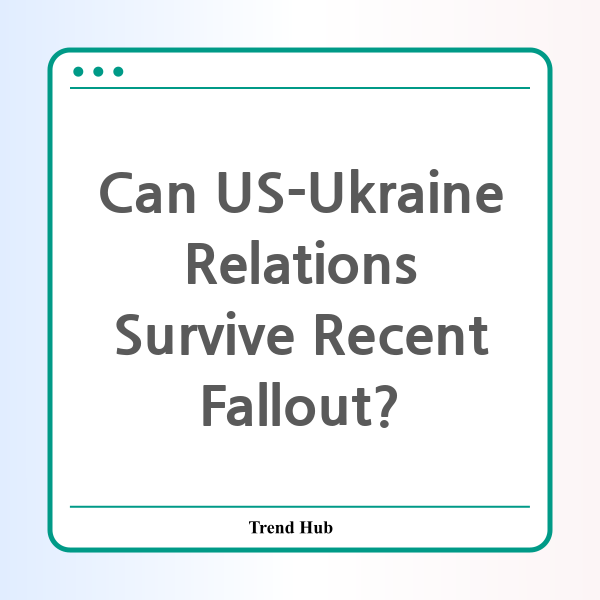* This website participates in the Amazon Affiliate Program and earns from qualifying purchases.

What does the future hold for US-Ukraine relations following a tumultuous meeting between leadership? The recent Oval Office confrontation between President Donald Trump and Ukrainian President Volodymyr Zelenskyy has raised questions about diplomatic ties and the ongoing conflict with Russia.
On February 28, 2025, the world watched as Trump and Zelenskyy engaged in a heated debate regarding the best path to peace amidst the ongoing war. While this meeting was anticipated as a discussion of solidarity and strategy, it quickly spiraled into a public display of frustration and disagreement. Trump, expressing his dissatisfaction, warned Zelenskyy that if he did not agree to a deal, the United States might withdraw its support. “You’re either going to make a deal or we’re out,” he stated, highlighting the precarious nature of US involvement in the region.
Vice President JD Vance’s comments during the meeting also drew attention, as he labeled Zelenskyy as “disrespectful” for appearing combative in front of the media. Vance berated Zelenskyy for allegedly failing to express gratitude for American support—a claim that has been fact-checked and found misleading. Zelenskyy has consistently expressed appreciation for US assistance, even after the intense Oval Office discussion.
One of the key moments in this fallout was Trump's assertion that Ukraine had not received proper support and that Zelenskyy should offer more public thanks. This narrative was quickly debunked when fact-checkers revealed that Zelenskyy had publicly acknowledged the US's contributions on multiple occasions, including during a recent visit to the US. His gratitude was evident in various forums, countering claims made by Trump and Vance.
During a pivotal meeting with Congress members, Zelenskyy remarked on the support from the US with heartfelt thanks, yet the media portrayal and statements from some political figures suggested otherwise. Zelenskyy's visit to Pennsylvania was scrutinized, with accusations of campaigning alongside Democratic leadership. In reality, this meeting focused on acknowledging local efforts to support Ukraine's military needs, not a political agenda.
Miscommunication and misrepresentation appear to be at the heart of this diplomatic drama. With Trump claiming that the United States has provided Ukraine $350 billion in support, experts quickly corrected this figure, suggesting the actual amount is likely between $175 billion and $185 billion. This discrepancy emphasizes the need for accurate information in shaping public and political sentiments.
The fallout from the meeting has prompted Secretary Rubio to step forward, offering a glimmer of hope for mending relations. He emphasized the importance of collaboration and understanding between the US and Ukraine, asserting that a renewed focus on diplomacy could pave the way for reconciliation.
The relationship between the US and Ukraine remains pivotal not only for regional stability but also for broader international relations. This recent meeting serves as a reminder of the complexities involved in foreign diplomacy and the significance of maintaining open and constructive dialogues.
In conclusion, as both countries navigate the aftermath of this explosive encounter, the question remains: can trust be rebuilt, and can a productive relationship emerge from this turmoil? The forthcoming actions from both leaderships will be crucial in determining the future trajectory of US-Ukraine relations.
* This website participates in the Amazon Affiliate Program and earns from qualifying purchases.